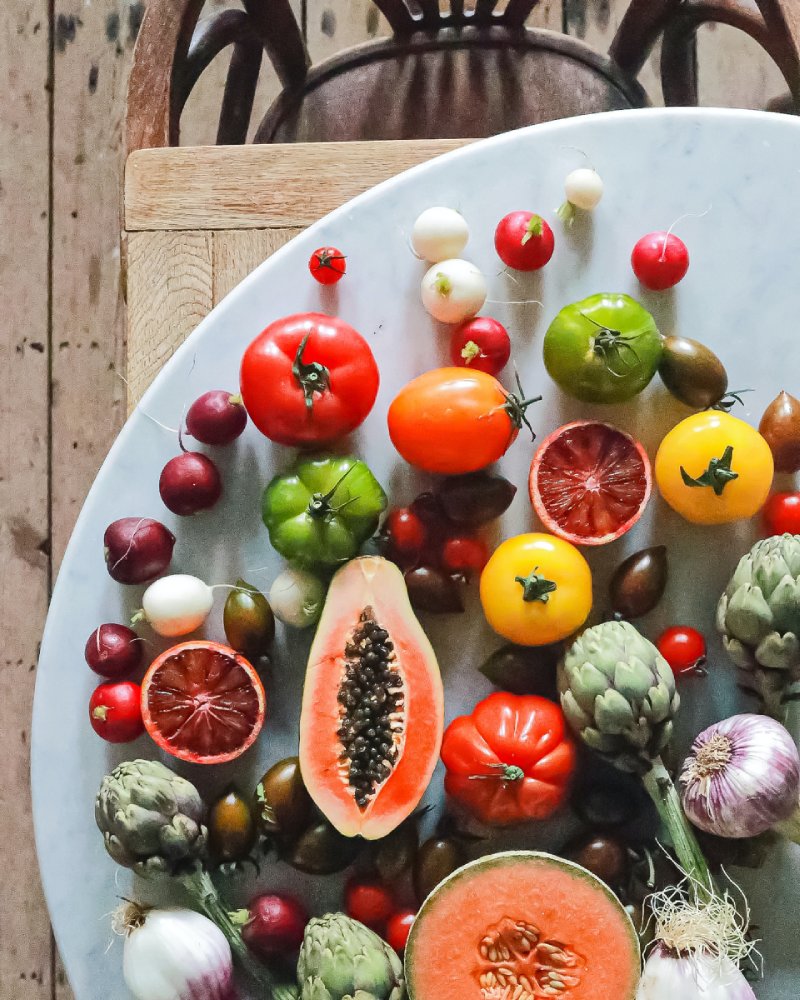Introduction
The world is experiencing a significant shift in dietary patterns, with many people now choosing to follow a vegan lifestyle. From the desire to lead healthier lives to making a conscious choice for the planet, veganism is becoming a popular choice for many.
Understanding Veganism
Veganism is more than just a diet; it’s a lifestyle choice that avoids the use of animal products in all forms. This extends beyond food to include clothing, cosmetics, and other products derived from animals. At its core, veganism is rooted in a philosophy of compassion, aiming to minimize harm to animals and exploitation in any form.
From a dietary perspective, a vegan diet excludes meat, poultry, fish, eggs, dairy products, and any other foods containing animal-derived ingredients. Instead, it focuses on a variety of plant-based foods, such as fruits, vegetables, grains, legumes, nuts, and seeds.
Rise of Veganism Globally
In recent years, veganism has seen a significant rise globally. The Vegan Society reports that the demand for meat-free food increased by 987% in 2017 and going vegan was predicted to be the biggest food trend in 2018. Numerous factors contribute to this rise, including growing awareness of the health benefits of a plant-based diet, concern for animal welfare, and the impact of livestock farming on the environment.
Today, veganism is becoming mainstream, with more vegan options available in grocery stores, restaurants, and even fast food chains. Additionally, many celebrities and influential figures advocating for a vegan lifestyle have further fueled its popularity.
Scope of the Post
In this post, we’ll explore various aspects of veganism, including its health benefits and impact on the environment. We’ll delve into the nutritional considerations of a vegan diet, debunk common myths, and offer practical tips for those interested in embracing a vegan lifestyle. We’ll also touch upon the environmental implications of a vegan diet and its potential role in addressing climate change. The aim of this post is to provide a comprehensive understanding of veganism, empower informed dietary choices, and highlight the impact of our food choices on our health and the planet.
Whether you’re considering veganism, are a seasoned vegan, or just curious about this growing trend, this post will provide valuable insights and serve as a resource in your exploration of veganism. Join us on this journey as we delve into the world of plant-based living and its implications for personal health and the health of our planet.
Veganism and Health
Veganism, by eliminating animal products, significantly alters one’s dietary habits. This section explores the health aspects of a vegan diet, discussing both the benefits and potential risks, and delves into the impact on chronic diseases.

Nutritional Benefits of a Vegan Diet
A well-planned vegan diet is rich in various nutrients. It generally includes a wider variety of fruits, vegetables, grains, and legumes - all of which contribute to a nutrient-dense menu.
Vegans often have higher intakes of dietary fiber, an essential nutrient for healthy digestion. They also tend to consume more antioxidants, which are found abundantly in fruits and vegetables and help protect the body against disease. The diet is naturally low in saturated fats, which are commonly found in animal products and can contribute to heart disease.
Plant-based diets also provide plenty of phytochemicals – beneficial compounds in plants that aren’t technically vitamins or minerals but have health-promoting properties. They’re the reason why brightly colored fruits and vegetables are often superfoods.
Health Risks and How to Avoid Them
While there are numerous benefits to a vegan diet, it’s essential to plan your meals carefully to ensure you’re getting all the necessary nutrients. Certain nutrients, such as vitamin B12, vitamin D, iron, calcium, and omega-3 fatty acids, are primarily found in animal products and can be challenging to get in adequate amounts from a vegan diet alone.
However, this doesn’t mean a vegan diet can’t provide these nutrients. Many plant foods are fortified with these vitamins and minerals, and there are vegan supplements available. For example, B12 can be obtained from fortified plant milks, breakfast cereals, and nutritional yeast, or through a B12 supplement. Likewise, omega-3 can be sourced from flaxseeds, chia seeds, and hemp seeds, or a vegan algae-based supplement. It’s crucial to do your research and, if necessary, consult with a healthcare professional or a dietitian to ensure your nutritional needs are being met.
Veganism and Chronic Diseases
Numerous studies link vegan diets with lower risks of various chronic diseases. Heart disease, type 2 diabetes, high blood pressure, and certain types of cancer are less prevalent among those following plant-based diets.
Vegan diets often lead to lower cholesterol and blood pressure levels, primarily due to the elimination of animal fats and the increased intake of fiber and antioxidants. Additionally, they are usually lower in calories, which can help with weight management – another critical factor in preventing chronic disease.
Finally, a vegan diet can support healthier gut microbiota due to its high fiber content. Emerging research suggests that a healthy gut can play a significant role in preventing and managing various diseases, from heart disease to cancer.
In conclusion, a vegan diet can significantly impact health, providing many nutritional benefits and protection against certain diseases. However, care must be taken to ensure all nutritional needs are met. As always, when making significant dietary changes, it’s recommended to seek advice from healthcare professionals.
Environmental Impact of Veganism
As much as veganism is a dietary choice, it is also an environmental stance. By opting to eliminate animal products from our diets, we can profoundly impact the health of our planet. This section will delve into how a vegan lifestyle contributes to a reduced carbon footprint, aids in water conservation, and supports biodiversity preservation.

Reduced Carbon Footprint
Vegan diets have a significantly lower carbon footprint compared to those that include animal products. Livestock farming contributes to a large percentage of global greenhouse gas emissions, including methane, a potent greenhouse gas. By choosing plant-based foods, we can drastically reduce the demand for livestock farming and, consequently, its associated emissions.
One report by the United Nations Food and Agriculture Organization stated that livestock accounts for about 14.5% of all human-caused greenhouse gas emissions. Another study found that if the world were to shift towards a vegan diet, global greenhouse gas emissions could be reduced by two-thirds.
Indirect Carbon Reduction
A vegan diet also reduces carbon emissions indirectly. The vast amounts of grains fed to livestock to produce a small amount of meat or dairy is a highly inefficient use of resources. A plant-based diet requires less land, which could otherwise be used to grow more food or to reforest and capture more carbon dioxide.
Conservation of Water Resources
Water scarcity is a serious issue globally, and the agricultural sector, specifically livestock farming, is a significant water consumer. It takes considerably more water to produce meat and dairy products than it does to grow plants due to the water needed to grow feed crops, provide drinking water for animals, and clean farm facilities.
A shift towards veganism would substantially reduce the pressure on our water resources. A study published in the journal “Ecosystems” suggested that a vegan diet could cut the use of water in food production by as much as 42%.
Preserving Biodiversity
Livestock farming is a leading cause of deforestation and habitat destruction, leading to a loss of biodiversity. Forests are often cleared to create pastures or grow feed crops for animals, which displaces countless wild species.
Choosing a vegan diet helps reduce demand for animal agriculture, thereby reducing the strain on land use and helping to preserve natural habitats. By protecting these habitats, we can maintain biodiversity and the health of ecosystems.
Moreover, by reducing the need for fishing, we can protect marine biodiversity. Overfishing is a significant problem, leading to the decline of many fish species and disrupting marine ecosystems.
In conclusion, a vegan diet can have a profound positive impact on the environment. From significantly reducing our carbon footprint and conserving water resources to preserving biodiversity, the environmental benefits of veganism are numerous and substantial. While the shift may not be easy for everyone, even small changes towards consuming fewer animal products can make a significant difference.
Debunking Vegan Myths
Despite growing acceptance and understanding of veganism, there still exist a number of misconceptions about this lifestyle. In this section, we will address and debunk three of the most common myths surrounding veganism.

Myth: Vegans Don’t Get Enough Protein
One of the most pervasive myths about veganism is that it’s difficult to get enough protein without consuming animal products. This is simply not true. Many plant-based foods are rich in protein, and by eating a varied diet, vegans can easily meet their protein needs.
Legumes like lentils, chickpeas, and beans; whole grains like quinoa and brown rice; nuts and seeds; and even some vegetables like broccoli and spinach, all contain significant amounts of protein. Moreover, there are numerous plant-based protein powders and fortified foods available for those who need extra protein, like athletes.
The Variety Factor
Ensuring a variety of these sources in the diet not only guarantees adequate protein but also ensures a good intake of all essential amino acids. It’s worth noting that while most plant proteins are considered “incomplete” proteins ( meaning they lack one or more essential amino acids), consuming a variety of plant-based protein sources throughout the day will provide all the essential amino acids your body needs.
Myth: Vegan Diets Are Always Healthy
While a well-planned vegan diet can certainly be very healthy, the phrase “vegan” doesn’t automatically equate to healthful. Just like any other diet, a vegan diet can be filled with processed foods and lack nutritional balance. Oreos, French fries, and soda can all be vegan, but they certainly aren’t healthful.
Balance is Key
The key to a healthy vegan diet, like any diet, is balance. Consuming a variety of fruits, vegetables, whole grains, legumes, nuts, and seeds will provide a wide range of nutrients. It’s also important to be mindful of vitamin B12 and omega-3 fatty acids, nutrients that can be more challenging to obtain from a vegan diet but can be found in fortified foods or supplements.
Myth: Veganism Is Expensive
Another common myth is that veganism is an expensive lifestyle. While it’s true that some specialty vegan items like faux meats and cheeses can be pricey, the core components of a vegan diet — fruits, vegetables, grains, and legumes — are typically some of the most cost-effective foods available.
Cost-effective Strategies
Buying in bulk, choosing seasonal produce, and cooking at home can further reduce costs. Additionally, as the demand for vegan products increases, more affordable options are continuously becoming available.
In conclusion, while there may be challenges to a vegan lifestyle, many of the perceived obstacles are based on common myths. Understanding the truth about these misconceptions can help individuals make informed decisions about adopting a vegan lifestyle.
Transitioning to a Vegan Lifestyle
The transition to a vegan lifestyle is a profound personal decision that can yield numerous benefits for health and the environment. However, it can sometimes feel overwhelming. This section provides practical tips to ease the transition and make the shift to veganism more approachable and enjoyable.

Starting Slow: Meatless Mondays
If the idea of going vegan overnight seems daunting, consider starting slow. Initiatives like “Meatless Mondays” encourage people to eliminate meat from their diet one day a week. This small step can have a significant impact on your health and the environment and can serve as a stepping stone towards a more plant-based lifestyle.
Gradual Change is Sustainable
Gradual changes often tend to be more sustainable in the long run. Once you’re comfortable with Meatless Mondays, you might consider adding another meat-free day to your week, or try eliminating a different animal product like dairy or eggs. This approach allows you to adjust to new foods and cooking techniques gradually.
Finding Vegan Alternatives to Your Favorite Foods
In the modern food landscape, there’s almost always a vegan alternative to your favorite non-vegan foods. From plant-based milks and cheeses to meat substitutes made from tofu, seitan, tempeh, and legumes, there are numerous options to explore.
New Tastes and Textures
While these alternatives might not taste exactly like their non-vegan counterparts, they offer new flavors and textures that you might find you enjoy just as much or even more. Plus, innovative vegan products are continuously being introduced, making it an exciting time to explore vegan cuisine.
Learning to Read Labels
A crucial skill when transitioning to a vegan lifestyle is learning to read and understand food labels. While some products might seem vegan at first glance, they can contain hidden animal-derived ingredients.
Be Watchful
Common non-vegan ingredients to watch out for include gelatin (made from animal bones and skin), casein (a milk protein), carmine (a dye made from beetles), and certain types of vitamin D3 (derived from sheep’s wool). Many products now have allergen information that indicates if they contain milk or eggs, which can be helpful.
In addition to packaged foods, be mindful of non-food items like cosmetics, personal care items, and cleaning products. Many of these products can contain animal ingredients and many are tested on animals. Look for products labeled as vegan and cruelty-free.
Transitioning to a vegan lifestyle is a journey. Remember that every step towards veganism, no matter how small, is a positive step for your health and for the planet. Be patient with yourself and enjoy the process of exploring new foods and habits.
Tips for a Balanced Vegan Diet
A well-planned vegan diet can provide all the nutrients your body needs for optimal health. Like any diet, it requires a balance and variety of foods to ensure you’re meeting all your nutritional needs. This section provides tips to help you create a balanced and nutritious vegan diet.

Incorporating Variety into Your Diet
A diverse diet is essential for all eating styles, not just veganism. Including a variety of foods in your diet ensures you’re getting a wide range of nutrients.
Colors and Categories
Try to incorporate foods of different colors and from different categories (fruits, vegetables, grains, legumes, nuts, and seeds) into your meals. Each color and category provides unique nutrients that contribute to your overall health.
Ensuring Adequate Nutrient Intake
Some nutrients are especially important for vegans to be aware of, as they may require some planning to get in adequate amounts.
B12, Iron, Omega-3s
Vitamin B12, for example, is found naturally only in animal products, so vegans should consider fortified foods or supplements. Iron can be obtained from plant sources like lentils and spinach, but it’s not as easily absorbed as iron from animal products, so eating vitamin C-rich foods can help increase absorption. Omega-3 fatty acids, which are typically found in fatty fish, can be obtained from flaxseeds, chia seeds, and walnuts, or a vegan omega-3 supplement.
Vegan Superfoods to Include in Your Diet
While all plant foods have their benefits, some are especially nutrient-dense. Including these “superfoods” in your diet can help ensure you’re getting an abundance of beneficial nutrients.
Leafy Greens, Berries, Legumes
Leafy green vegetables like spinach and kale are packed with vitamins, minerals, and fiber. Berries are a potent source of antioxidants, which can help protect against chronic diseases. Legumes, including beans, lentils, and chickpeas, are a great source of plant-based protein and are rich in fiber and various vitamins and minerals.
Seeds and Nuts
Seeds, like flaxseeds and chia seeds, are excellent sources of omega-3 fatty acids, while nuts like almonds and walnuts provide healthy fats, fiber, and protein.
Maintaining a balanced vegan diet can require some planning, but the benefits are well worth it. Remember, it’s not about perfection, but about making sustainable choices that benefit your health and the environment. With these tips, you’re well on your way to creating a nutrient-rich vegan diet.
Veganism Beyond the Plate: Lifestyle and Ethics
While most people associate veganism primarily with diet, it’s essential to note that for many, it extends far beyond what’s on their plate. Veganism often influences all aspects of lifestyle and is deeply rooted in ethics, from animal rights to sustainability. Let’s delve into the broader implications of a vegan lifestyle.

Veganism and Animal Rights
Animal Welfare at the Heart of Veganism
At its core, veganism seeks to minimize harm to animals. This ethical stance goes beyond diet and influences other aspects of lifestyle as well. For instance, vegans typically avoid products tested on animals or containing animal-derived ingredients. This might involve selecting cruelty-free cosmetics or personal care items, or choosing entertainment options that don’t involve animals, such as circuses or zoos.
Vegan Fashion and Beauty Products
Conscious Consumerism
In the fashion and beauty industries, veganism is more than just a trend; it’s a shift towards more conscious consumerism. Many brands are now offering vegan alternatives to leather, wool, silk, and other animal-derived materials. Vegan beauty products, free from animal-derived ingredients and not tested on animals, are also gaining popularity.
Pioneering Brands and Innovations
Numerous brands have fully embraced veganism, producing items that are not only free from animal products but also strive for sustainability and fair trade practices. This is leading to incredible innovations, such as plant-based leathers made from pineapple or mushroom fibers, and further promoting the ethos of veganism.
The Vegan Approach to Sustainability
Food and Beyond
Veganism’s impact on sustainability doesn’t stop at diet. It also encompasses everyday choices that contribute to a more sustainable lifestyle. From reducing plastic use to promoting zero waste practices, vegans often integrate sustainability into their daily routines.
Reducing the Environmental Footprint
Vegan products tend to have a lower environmental impact. For instance, vegan fashion items typically use less water and produce fewer greenhouse gas emissions compared to conventional animal-derived materials. Moreover, by opting for plant-based and cruelty-free products, vegans contribute less to pollution and deforestation, further reducing their environmental footprint.
Veganism is more than a dietary choice. It’s a way of life, underpinned by a commitment to compassion, justice, and sustainability. As the movement continues to grow, it’s encouraging more people to consider their choices’ impacts, not just on their health, but also on animals and the environment. And as we’ve seen, making these conscious choices doesn’t mean compromising on taste, style, or quality. If anything, it opens up new and exciting possibilities.
Challenges of Veganism and How to Overcome Them
While veganism comes with an array of benefits, it’s only fair to acknowledge that it can pose some challenges. For those new to this lifestyle or considering adopting it, the journey might seem a bit daunting. However, most of these challenges are surmountable, especially with a bit of foresight, planning, and a pinch of determination. Let’s explore some common hurdles and practical ways to overcome them.

Dealing with Social Situations
Navigating Conversations and Criticism
As a vegan, you might face questions, curiosity, or even criticism from others who don’t fully understand this lifestyle choice. It’s essential to arm yourself with accurate information and explain your reasons confidently. Remember, it’s not about convincing everyone to become vegan, but about promoting understanding and respect for diverse choices.
Dining Out and Celebrations
Dining out or attending events can initially feel a bit tricky for vegans. However, most restaurants now offer vegan options, and you can always call ahead to ensure there’s something for you. Also, consider carrying vegan snacks or dishes during social gatherings to ensure you’re not left hungry and to share the joys of vegan food with others.
Vegan Travel: Tips and Tricks
Research and Preparation
Travelling as a vegan can be challenging, especially in countries where veganism is not widely recognized. A little research and preparation can go a long way. Look for vegan-friendly restaurants or local food markets where you can buy fresh produce. Apps and online platforms that rate vegan-friendly dining options can be incredibly helpful.
Carry Vegan Essentials
Consider carrying some vegan essentials like plant-based snacks, instant oatmeal, or nut butter while travelling. This way, you’ll always have something to eat, even when vegan options are scarce.
Staying Vegan: Long-term Commitment
Building Habits
Staying vegan requires building new habits and routines. This might include planning meals, learning new recipes, reading labels, and more. Remember that it’s okay to take it one step at a time and not rush the process.
Staying Motivated
Remember your reasons for choosing veganism, whether it’s for health, animals, the environment, or all three. Stay informed about the positive impacts of your choice, as this can provide motivation for long-term commitment. Joining a local or online vegan community can also offer support and inspiration.
Regular Health Checks
Ensure that you’re meeting all your nutritional needs by having regular health checks. Consult with a healthcare provider or nutritionist familiar with vegan diets to ensure your diet is balanced and nutritious.
Transitioning to and maintaining a vegan lifestyle can be challenging, but remember that every significant change comes with its own set of challenges. The key is to remain patient with yourself, stay informed, and enjoy the journey towards a more compassionate and sustainable lifestyle. After all, every vegan meal is a step towards a healthier body and a healthier planet.
Resources for Aspiring Vegans
Navigating the vegan lifestyle becomes more manageable when you have a wealth of resources at your fingertips. Thankfully, the rising global interest in veganism has led to the development of comprehensive tools and platforms that offer guidance, inspiration, and support for those eager to explore this lifestyle. Here, we’ll spotlight reliable nutrition resources, cookbooks, food blogs, and online communities that can prove invaluable for aspiring vegans.

Reliable Sources for Vegan Nutrition Information
NutritionFacts.org
A non-profit initiative led by Dr. Michael Greger, NutritionFacts.org offers a treasure trove of information on plant-based nutrition, including articles, videos, and webinars.
The Vegan Society
An international educational charity, The Vegan Society, provides an array of resources for vegan living, including comprehensive nutrition guides and advice.
Registered Dietitians and Nutritionists
Many dietitians and nutritionists specialize in plant-based diets and offer evidence-based advice. It can be beneficial to schedule a consultation or follow such professionals online for accurate nutrition information.
Cookbooks and Food Blogs for Vegan Recipes
“Veganomicon” by Isa Chandra Moskowitz and Terry Hope Romero
Considered the ‘bible’ of vegan cooking, this book offers more than 250 vegan recipes, from comfort foods to exquisite global cuisine.
Minimalist Baker
This food blog features simple vegan recipes requiring 10 ingredients or less, 1 bowl, or 30 minutes or less to prepare. It’s a fantastic resource for busy vegans or beginners.
Oh She Glows
Created by Angela Liddon, this award-winning blog offers over 500 wholesome, plant-based recipes. She also has a cookbook and an app to make vegan cooking a breeze.
Supportive Vegan Communities Online
Reddit’s Vegan Community
This vibrant online forum provides a platform for vegans to share experiences, advice, recipes, and support.
HappyCow
HappyCow is not just an app for finding vegan and vegetarian restaurants worldwide; it also has a thriving online community where users can share reviews and advice.
Local Vegan Facebook Groups
Many cities and towns have local vegan Facebook groups, which can be an excellent resource for local restaurant recommendations, events, and community support.
Having an array of resources can make the vegan journey more enjoyable and less daunting. It’s all about learning, experimenting, and sharing, after all. With the right information, delicious recipes, and supportive communities, embracing veganism can become an empowering and life-enhancing decision. Whether you’re contemplating veganism or have already embarked on this journey, these resources can provide invaluable guidance every step of the way.
Conclusion
In this post, we have traversed the multifaceted world of veganism, discovering its benefits for our health and the planet, debunking common myths, and exploring how one might transition to a vegan lifestyle. Let’s recap the main points and look towards the future, considering how small changes can contribute to significant impacts.

Recap of Health and Environmental Impact of Veganism
The health benefits of a balanced vegan diet are undeniable. From the high intake of fruits, vegetables, whole grains, and legumes, individuals can experience enhanced nutrition and a lower risk of many chronic diseases. However, it’s crucial to understand that thoughtful planning is required to ensure nutrient adequacy, particularly for nutrients like B12, iron, and omega-3 fatty acids.
On the environmental front, a vegan lifestyle can substantially reduce one’s carbon footprint, conserve water resources, and contribute to biodiversity preservation. Livestock farming is one of the leading causes of climate change, deforestation, and water pollution, which can all be mitigated by shifting towards plant-based diets.
Encouragement for Readers to Explore Veganism
Whether your motivation stems from health, environmental concerns, animal rights, or a combination of these, there’s never been a better time to explore veganism. There’s a wealth of resources, delicious recipes, and supportive communities to guide you on this journey. Remember, veganism is not about perfection but about making mindful choices that align with your values.
Call to Action: Small Changes for Big Impact
Every step towards a more plant-based diet is a victory for your health and our planet. You don’t have to leap into full veganism overnight. Small changes, like participating in Meatless Mondays, choosing a plant-based milk alternative, or exploring vegan recipes, can make a significant impact over time.
Consider setting manageable goals and gradually incorporating more plant-based foods into your diet. Seek out information, try new recipes, and don’t be afraid to experiment. Every plant-based meal is a step in the right direction.
Let’s not forget the ethical aspect of veganism. The choices we make, from the food we eat to the products we buy, can express our commitment to animal welfare and sustainable practices.
In conclusion, veganism offers a powerful tool for positive change - for our health, the environment, and the well-being of animals. Exploring veganism can be a rewarding journey, and we hope this guide serves as a helpful starting point. Remember, it’s about progress, not perfection. Every step matters. Embrace the journey and enjoy the positive impacts of your decisions.

